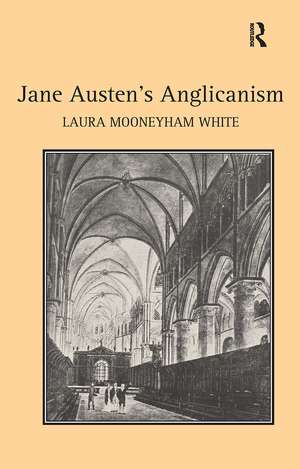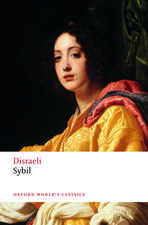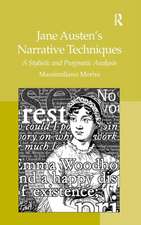Jane Austen's Anglicanism
Autor Laura Mooneyham Whiteen Limba Engleză Hardback – 28 feb 2011
| Toate formatele și edițiile | Preț | Express |
|---|---|---|
| Paperback (1) | 259.31 lei 6-8 săpt. | |
| Taylor & Francis – 14 oct 2024 | 259.31 lei 6-8 săpt. | |
| Hardback (1) | 1113.91 lei 6-8 săpt. | |
| Taylor & Francis – 28 feb 2011 | 1113.91 lei 6-8 săpt. |
Preț: 1113.91 lei
Preț vechi: 1358.43 lei
-18% Nou
Puncte Express: 1671
Preț estimativ în valută:
213.20€ • 221.74$ • 178.66£
213.20€ • 221.74$ • 178.66£
Carte tipărită la comandă
Livrare economică 14-28 martie
Preluare comenzi: 021 569.72.76
Specificații
ISBN-13: 9781409418634
ISBN-10: 1409418634
Pagini: 228
Dimensiuni: 156 x 234 x 14 mm
Greutate: 0.59 kg
Ediția:1
Editura: Taylor & Francis
Colecția Routledge
Locul publicării:Oxford, United Kingdom
ISBN-10: 1409418634
Pagini: 228
Dimensiuni: 156 x 234 x 14 mm
Greutate: 0.59 kg
Ediția:1
Editura: Taylor & Francis
Colecția Routledge
Locul publicării:Oxford, United Kingdom
Public țintă
AcademicNotă biografică
Laura Mooneyham White is Professor of English at the University of Nebraska - Lincoln, USA. Her scholarship focuses on the novels of Jane Austen and other works of nineteenth-century British literature.
Cuprins
Part 1 Jane Austen and Anglicanism; Introduction, Laura Mooneyham White; Chapter 1 Jane Austen's Religious Inheritance: The Georgian Church, Laura Mooneyham White; Chapter 2 Jane Austen as an Anglican and Anglicanism in the Novels, Laura Mooneyham White; Chapter 3 Austen and the Anglican Worldview, Laura Mooneyham White; Part 2 The Sins of the Author; Chapter 4 Wordplay, Candor, and Malice, Laura Mooneyham White; Chapter 5 World-making, Laura Mooneyham White; Chapter 102 Coda Austen and The Importance of Being Earnest, Laura Mooneyham White;
Recenzii
Classified as ’Research Essential' by Baker & Taylor YBP Library Services A Yankee Book Peddler UK Core Title for 2011 'The place of religion in Jane Austen's life and fiction has become a subject of heated debate. Was she a pious spinster, or did she wear her faith lightly? Do her novels offer evidence of the strength of her faith or provide a refutation of it? Laura Mooneyham White's Jane Austen's Anglicanism persuasively argues that many of us have fundamentally misunderstood elements of the Church of England and Christian faith in Austen's era. This brilliant, learned book sets out to show us what we have missed, with clear, factual explanations and provocative interpretations on every page. It will have students and scholars alike reading Austen's work through new eyes.' Devoney Looser, University of Missouri, USA '... this scrupulously researched book should be required reading for any student of 18th-century British literature and, of course, Austen. Summing Up: Essential. Lower-division undergraduates and above.' Choice 'The book concludes with a brilliant coda that compares Emma with The Importance of Being Earnest, a comedy in a different style. It is illuminating to contrast the pairs of lovers, the spinsters, the clergymen, and the wit of these great works...' Jane Austen Society of North America Newsletter ’White makes us aware of the creative tension between an author’s era and her genius, and for that we should be grateful. Well written and thoroughly researched, this book offers new insight into the religious beliefs that shaped Jane Austen. It is an important contribution to Austen scholarship.’ Journal of British Studies '... the sage critique and commentary in Jane Austen’s Anglicanism reveals the context and touchstones of faith that guided Austen’s writing, and enhances her genius.' The Wordsworth Circle 'White’s scholarship is not in doubt: her analysis of contemporary religious practice and teaching is compelling. Her state
Descriere
In her re-examination of Jane Austen's Anglicanism, White suggests that engaging with Austen's world in all its strangeness and remoteness reveals the novelist's intensely different presumptions about the cosmos and human nature. White argues that viewing Austen's Anglicanism through the lens of primary sources of the period provides a context for understanding the central conflict between Austen's malicious wit and her family's testimony to her Christian piety and kindness.








